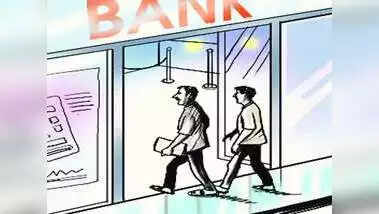Dr. Anand Prakash Shrivastava
The increasing incidence of lifestyle diseases, acidity and related gastrointestinal disorders among the young working population clearly indicates the level of stress in the office or workplace. Working people aged 40 years and below have very little time for themselves due to work. Apart from this, due to stress and fatigue, they face a lot of difficulty in achieving the targets set at the workplace. Although this has been seen for the last several years, but in recent times, such cases have increased rapidly.
The reason for this is burnout, which is increasing both in quantum and intensity. Dr. S. Gajanan, consultant psychiatrist at Delhi’s Vidyasagar Institute of Mental Health, Neuro and Allied Sciences (VIMHANS), says, “In recent times, there has been a significant increase in the number of people affected by work-related stress and burnout. It is common for working people, especially those who are married or above 25 years of age, to show symptoms of generalized anxiety disorder, depression and insomnia. About half of the people who come to us for consultation every day are troubled by work-related stress. However, the situation was not like this just five years ago.
Human resource professionals also believe that the problem of burnout has increased threefold in the last two-three years. Jaydeep Pahwa (name changed), a senior manager at a reputed placement agency in Kolkata, says something similar. According to him, cases of burnout have increased manifold in the last two-three years, especially among people serving in senior management positions. Pahwa says, ‘Actually, in the last few years, expectations from people working at the CEO level have increased manifold. Stakeholders keep a close eye on them. CEOs of today are burdened with work. They are under a lot of pressure due to the complexities of work and excessive work. Not only this, they compare the job to riding a lion.’
“Once you become a CEO, you don’t need another job,” says Pahwa. And to stay in the high-stakes game, you have to dramatically improve your speed. This requires working long hours and travelling a lot. High stress seems to have become a byproduct of a flat world, leading to serious health problems, marital problems, sleep disturbances, mental problems, alcoholism and even character issues.
Dr. Gajanan says that job burnout is a type of stress related to work. It involves physical or emotional exhaustion. Job burnout can also include feeling worthless, powerless and empty. Other conditions such as depression (trauma) are also behind burnout. Burnout can increase the risk of depression. But depression and burnout are different, and they require different treatments. Job burnout can affect your physical and mental health.
You can look for these symptoms to determine if you have job burnout and what you can do about it.
Signs of job burnout
To know if you are suffering from job burnout, consider the answers to these questions.
Do you question the value of your work? Do you have trouble getting started? Do you feel disconnected from your work and the people you work with? Do you lose patience in conversations with co-workers or customers? Do you lack the energy to do your job well? Do you have trouble concentrating on your work? Are you not satisfied with your work? Do you feel frustrated with your job? Do you doubt your abilities and skills? Are you using drugs or alcohol to feel better or to control your feelings? Have your sleep habits changed? Do you have headaches, stomach or bowel problems, or other physical complaints that have no known cause?
If you have answered yes to any of these questions, then it is possible that you have job burnout. You should consult a psychiatrist without wasting time. However, it is worth noting that all these symptoms can also be associated with health conditions such as depression. Dr. Gajanan explains that burnout often involves things in the office or workplace that you cannot control. But stress can definitely be controlled.
Talk to your boss about your concerns. Perhaps the two of you can work together to make changes or resolve problems. Set realistic goals for the work that needs to be done. Find out if the work can be done later. If things are unlikely to change at work, you may want to look for a job that is a better fit for you.
Ask for support from co-workers, friends or loved ones. Talking to others can help you cope. A sense of belonging prevents burnout. Sleep is good for health and helps keep your body healthy. Practice mindfulness, which means being aware of what is going on inside and around you without judgment or reaction. This practice can help you deal with fatigue and stress at work.
Tags: Mental Health Awareness
FIRST PUBLISHED : September 20, 2024, 22:32 IST






